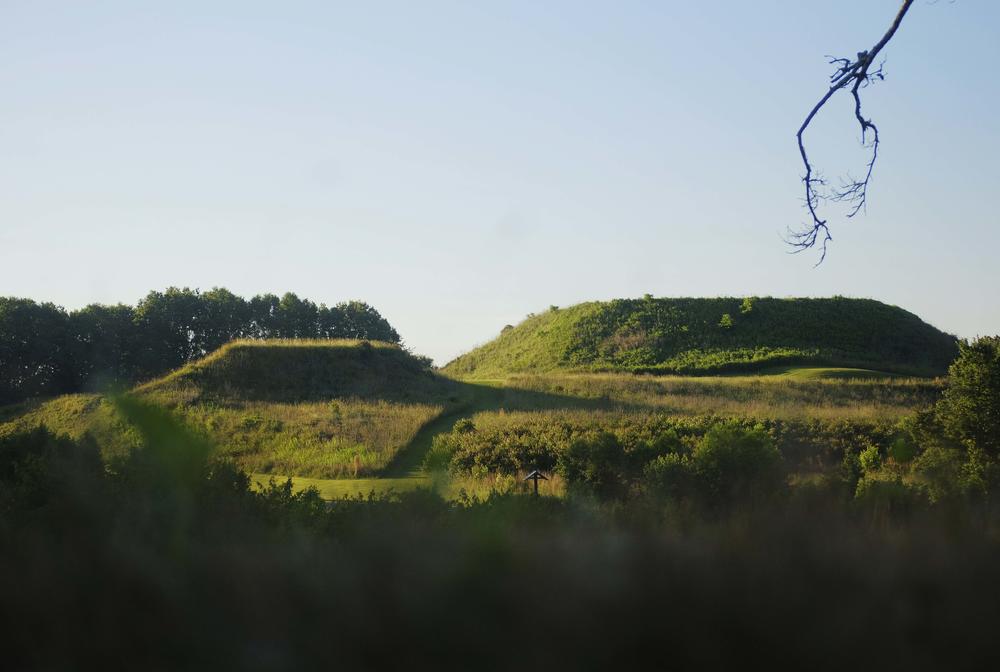
Caption
The Temple Mound Complex at the Ocmulgee Mounds National Historic Park in Macon in May.
Credit: Grant Blankenship/GPB News

The Temple Mound Complex at the Ocmulgee Mounds National Historic Park in Macon in May.
ATLANTA — A nonprofit organization dedicated to land conservation has acquired two parcels of land in Middle Georgia that will support efforts to establish the Ocmulgee Mounds as Georgia’s first national park.
The “Branson Tracts” occupy 931 acres in Bibb and Twiggs counties. The Open Space Institute has acquired the properties from conservation-minded landowner Martha Bond Branson with plans to transfer them to the U.S. Fish and Wildlife Service as additions to the 8,600-acre Bond Swamp National Wildlife Refuge.
The tracts are located a short distance from traditional Muscogee (Creek) Nation lands and Ocmulgee Mounds National Historical Park.
More than half a million people live in close proximity to the Bond Swamp, which will allow easy public access to an outdoor recreation opportunity.
“The benefits of protected land should be for everyone,” said Maria Whitehead, the Open Space Institute’s senior vice president of land in the Southeast. “The protection of the Branson Tracts … is a meaningful conservation accomplishment and the next step in creating the national park and preserve.”
Georgia’s two U.S. senators, Democrats Jon Ossoff and Raphael Warnock, and U.S. Reps. Austin Scott, R-Tifton, and Sanford Bishop, D-Albany, introduced legislation into Congress last month to create a national park and preserve at the Ocmulgee Mounds.
The area is the ancestral home of the Muscogee (Creek) Nation and has been inhabited continuously by humans for more than 12,000 years. The Muskogean people built mounds there during the Mississippian Period, which began around A.D. 900, for meeting, living, burial, and agricultural purposes.
The Branson properties were saved with help from the Knobloch Family Foundation, the Green South Foundation and the Peyton Anderson Foundation.
This story comes to GPB through a reporting partnership with Capitol Beat News Service.